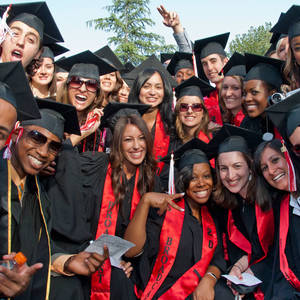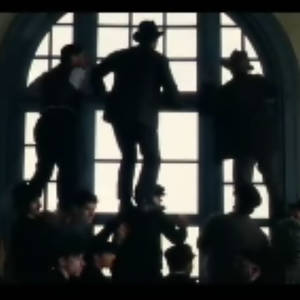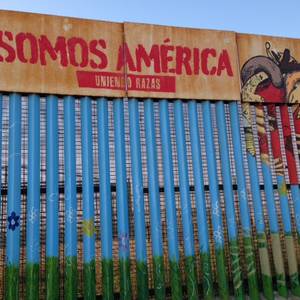Il controverso ordine esecutivo firmato dal presidente Donald Trump il 27 gennaio di quest’anno, e denominato dalla stampa “Muslim ban” perché accusato di avere una forte connotazione anti-islamica, continua a generare accesi dibattiti a livello internazionale. il 6 marzo Trump firma una nuova versione del provvedimento, i paesi interessati da restrizioni per l’accesso agli Stati Uniti sono Iran, Libia, Siria, Somalia, Sudan e Yemen – viene dunque escluso da queste restrizioni l’Iraq, inizialmente presente nella prima versione di questa “lista nera”. La metà degli stati ai cui abitanti viene negato il visto statunitense si trova nel Continente Africano (Libia, Somalia, Sudan), due di questi nell’Africa sub-sahariana (Somalia e Sudan). Ma quali sono i rapporti tra gli Stati Uniti e quest’area del planisfero geopolitico? Come si evolveranno alla luce di questo discusso provvedimento? Quali potrebbero essere i metodi alternativi di gestione dei flussi migratori, sia negli stati Uniti che in Italia? Lo abbiamo chiesto a Maria Cristina Ercolessi, professore associato di Sistemi Politici e Sociali dell’Africa Contemporanea presso l’Università degli Studi di Napoli “L’Orientale”.
You chose: Immigration Ban
-
-
The morning after the election, when I awakened my twin ten-year old daughters with news of Donald Trump’s upset victory, each of them broke into tears and asked the same question: what will happen to our Muslim friends? I didn’t have a good answer, and I still don’t. But I do know this: here in Vermont it is our Muslim neighbors who are keeping America great and making us feel right at home.
-
What prompts peoples to embark on perilous, unknown journeys in search of hospitable lands, if not desperation? For the vast majority of people around the world, the motives remain: hunger, oppression, war. These are good reasons to leave home. We should never demonize such people. They are us. This was our past. I have always referred to my parents as “economic refugees” due to the dire situation in which they (like so many others) found themselves after WWII. We pray it will never be our future. But it might.
-
Op-EdsWere it not for the United States’ earlier generous stance towards foreign students, even those from former enemy nations, I would not be here myself. My father came to the United States in 1953 on one of the first Fulbright scholarships. And even though he came from Italy, an enemy nation during much of WWII, he and countless others like him were welcomed to the United States through these scholarships.
-
Esiste un campo sconosciuto ai tiranni dove la diversità non è più opposizione, dove uomini e donne, vecchi e giovani si fanno compagnia. Esiste un campo dove basta entrarci per riscoprire la dignità della vita e la nostra appartenenza al genere umano. La compassione è la sola arte che permette di ridare nuova semente a un mondo sfigurato dal dispotismo dei tiranni. È l’arma congeniale agli uomini d’amore per arricchire i poveri e liberare i prigionieri. È la vittoria degli sconfitti, la tavola imbandita dei nullatenenti, il tesoro nascosto nel campo dei disgraziati di turno, è faro nel buio pesto del non senso. Vita che da vita si nutre e della vita si fa giocoliere. Trump e i suoi alleati, per strategia di potere, mirano per prima cosa a cancellare la compassione dal vocabolario del presente, per fare subito dopo prigioniero il mondo. Il passo è veloce, e lo sarà ancora di più se i giusti del pianeta non faranno diga al dilagare dell’ignoranza.
-
The most commonly held view of Italian Americans is that they are overwhelmingly conservative. Our social network experience, however, tells us a different, more complex story. In response to the recent presidential executive order, i-Italy has published a series of articles from various contributors who took the side of opposition. Once the posts hit Facebook, we received mixed feedback from our readers. While the hundreds of "likes" and "shares" received in the first 24 hours show that the majority applaud the content, many of the comments and replies suggest otherwise—most defend Trump’s reasoning and argue with the opinions presented in the articles. This proves that not all Italian Americans are of the same mindset. It also reflects a historical shift in public behavior that has already been observed many times in America: liberals tend to constitute a more "silent" majority online (they are content with pressing the "like" button) while conservatives are more vocal and tend to occupy the sphere of public discourse (they use the "comments" tool more frequently).
-
When President Trump signed his Executive Order, I was preparing for my classes, and happened to be working on a lecture and discussion of Emanuele Crialese’s Golden Door (Nuovomondo – in Italian), a film about historical migration from Italy to the U.S. The story follows the travails of an extremely poor Sicilian family, the Mancusos, embarking on the transatlantic journey to reach the U.S. at the time of Mass Migration; it offers its take on concepts that in these days are omnipresent in the public debate: the image of the U.S. as a land of immigrants; the process of vetting those arriving at its boundaries; and the rejection of those deemed “unfit.” Mutatis mutandis, it’s not hard to extrapolate to a Syrian family searching for a new opportunity after much deprivation and suffering in their home country. For those of us living so close to that very statue that lifts its lamp beside the golden door in the New York Bay, the question about where the new world of the Mancuso family, “America,” is heading has never been more pressing.
-
Italians do know what it means seeking entry to the United States with fear of detention, deportation, and refusal.
-
The First Amendment of the United States Constitution (1979) simply states: "Congress shall make no law respecting an establishment of religion, or prohibiting the free exercise thereof; or abridging the freedom of speech, or of the press; or the right of the people peaceably to assemble, and to petition the Government for a redress of grievances."
-
As a scholar of Italian Studies with an interest in migration, working at a large Hispanic-designated public university in San Diego, the series of executive orders issued by the new U.S. President last week raised some puzzling questions about their impact in my region and their resonance with past events related to Italy’s emigrant and colonial histories.







































